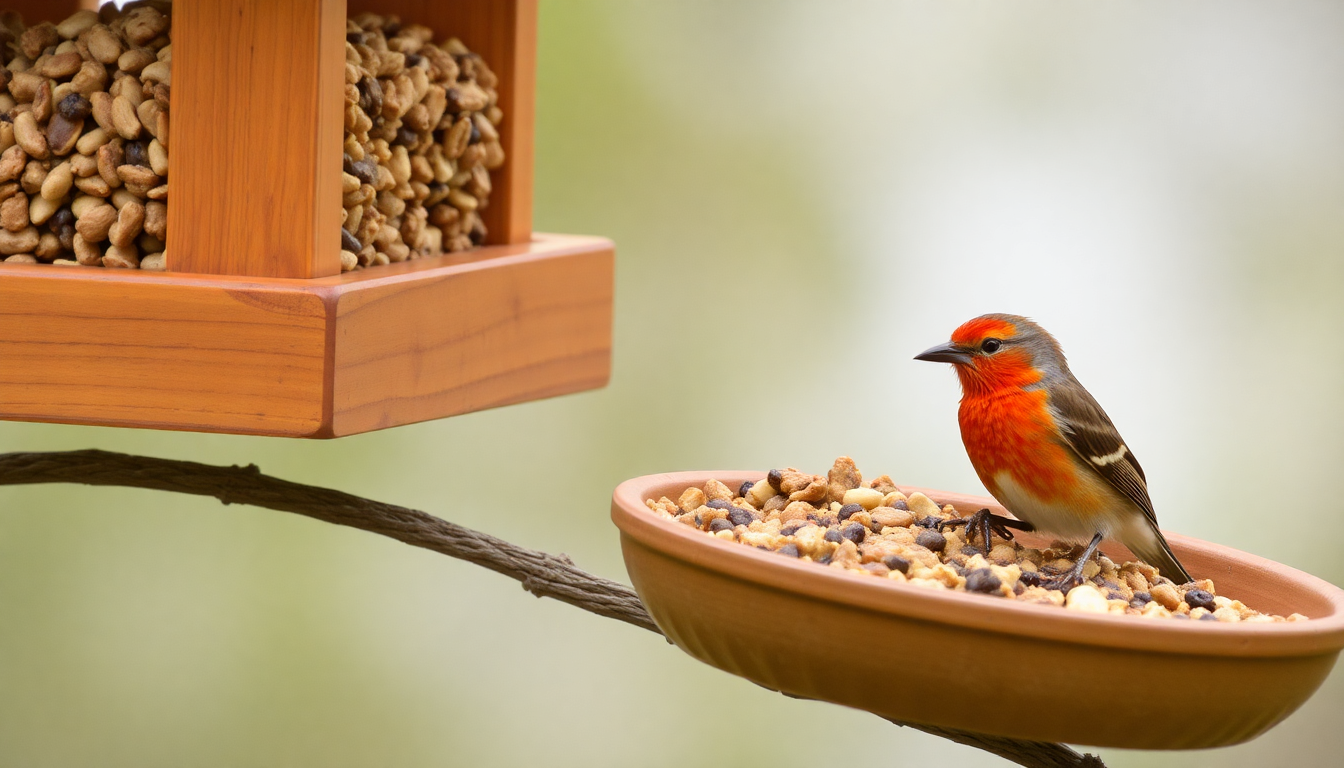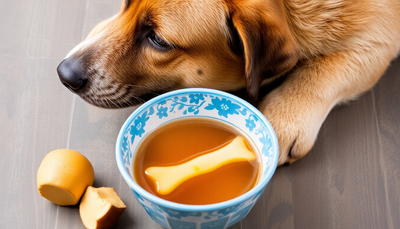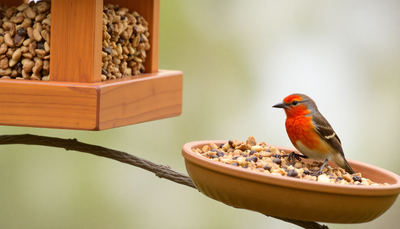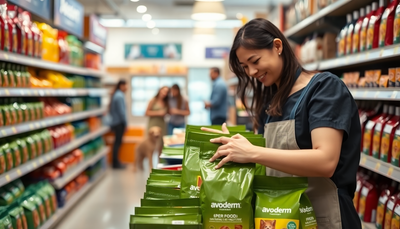Key Takeaways:
- Introduction
- Understanding Bird Nutritional Needs
- Types of Bird Food Available
- Factors to Consider When Choosing Bird Food
- Recognizing Quality Bird Food
- Transitioning to a New Diet
- Common Mistakes to Avoid
Understanding the Critical Role of Bird Food for Pet Birds
When it comes to the health and happiness of your feathered companions, choosing the right bird food for pet birds is of paramount importance. A well-balanced diet not only sustains their physical health but also plays a pivotal role in their overall behavior and well-being. In this introductory section, we will explore the profound impact that proper nutrition has on our avian friends and why investing time in understanding their dietary needs can lead to happier birds.
How Diet Influences Health
The link between diet and health in pet birds cannot be overstated. Nutritional deficiencies can lead to serious health problems, including obesity, heart disease, and digestive issues. Many pet bird owners may not realize that the nutritional needs of pet birds vary widely depending on species. For instance, parrots thrive on a diet higher in fat and protein, while finches may require more grains and seeds. Providing specific types of bird food that align with these needs is essential for keeping your pet bird vibrant and energetic.
Behavioral Changes Tied to Diet
The behavior of your pet bird can often signal underlying health issues related to diet. For example, if a bird is overly aggressive or lethargic, their diet may be a contributing factor. Birds that are fed a diet lacking in essential nutrients can exhibit irritation or distress. On the contrary, a balanced diet rich in the best bird food for parrots not only enhances mood but can also encourage playful and endearing behaviors. Recognizing these patterns and adjusting their diet accordingly can foster a positive and interactive relationship between you and your feathered friend.
Overall Well-being and Lifespan
Your pet bird's diet directly affects their quality of life and longevity. Birds that receive the proper nutrition are not only more active but may also lead longer, healthier lives. Ensuring that your bird experiences the full spectrum of nutrients available in types of bird food can empower them to avoid common health issues that could shorten their lifespan. Establishing a routine of providing high-quality bird food and fresh fruits and vegetables can significantly enhance their overall well-being.
In conclusion, the significance of selecting appropriate bird food for pet birds cannot be overlooked. It is the foundation of their health, influences their behavior, and promotes their overall happiness. As we delve deeper into the specifics of bird food options, keep in mind that the right dietary decisions are not just about sustenance—they are integral to your bird's life experience. Let’s embark on this journey toward understanding the best practices in pet bird care!
Understanding Bird Nutritional Needs
To ensure the health and happiness of your feathered companions, it is essential to understand their nutritional needs. Pet birds require a balanced diet that includes various food types to meet their nutritional requirements. Different vitamins, minerals, proteins, fats, and carbohydrates play distinct roles in their overall wellness. Below, we’ll explore each of these components to help you select the best bird food for parrots and other pet birds.
Vitamins
Vitamins are essential organic compounds that birds need in small amounts for various bodily functions. A deficiency in vitamins can lead to significant health issues. Here are some crucial vitamins for pet birds:
| Vitamin | Role | Sources |
|---|---|---|
| Vitamin A | Supports vision, skin, and immune function | Carrots, sweet potatoes, kale |
| Vitamin D | Assists in calcium absorption | Sunlight, fortified foods |
| Vitamin E | Acts as an antioxidant | Seeds, nuts, green leafy vegetables |
Minerals
Minerals are vital for numerous physiological processes in birds. They help in the formation of bones, eggshells, and aid in transportation of oxygen in the blood. Here are key minerals that should be included in the diet of your pet bird:
| Mineral | Function | Sources |
|---|---|---|
| Calcium | Bone development and egg production | Leafy greens, cuttlebone |
| Iron | Oxygen transport | Seeds, beans, whole grains |
| Phosphorus | Bone strength and energy transfer | Pulses, grains, nuts |
Proteins
Proteins are the building blocks of tissues and are essential for growth, molting, and overall health. Birds need a variety of protein sources in their diets. Including high-quality sources of protein, think about integrating:
- Cooked eggs
- Legumes
- Nuts and seeds (in moderation)
Fats
Fats are concentrated sources of energy and are crucial for the absorption of fat-soluble vitamins. However, moderation is key, as an excess can lead to obesity. Healthy fat sources include:
- Avocado (in small amounts)
- Nuts and seeds
- Fish oil
Carbohydrates
Carbohydrates provide birds with the necessary energy to sustain their active lifestyles. Choose whole grains and fruits, which not only offer energy but also additional vitamins and minerals. Some excellent sources of carbohydrates are:
- Brown rice
- Oats
- Whole grain bread
When selecting bird food for pet birds, it’s important to analyze and balance these nutritional components. Each bird species may have slightly varied nutritional requirements, and understanding these needs is fundamental to providing ideal pet bird care tips. Overall, investing time to research and understand what goes into your pet bird's diet will contribute significantly to their health and longevity.
Types of Bird Food Available
Seed Mixes
One of the most popular types of bird food is seed mixes. These blends often contain a variety of seeds designed to fulfill the basic nutritional needs of pet birds. Common ingredients include sunflower seeds, millets, and safflower seeds, providing essential fats and carbohydrates. However, it’s important to check that the mix is formulated specifically for the species you’re feeding, as not all birds have the same dietary requirements.
"A balanced seed mix serves as a foundation for your bird's diet but should be complemented with other types of food for optimal health."
Pellets
Pellets have gained popularity in recent years as a well-rounded option for avian diets. Unlike seed mixes, pellets are formulated to include all the essential vitamins and minerals that your bird needs. The best bird food for parrots, for instance, is often in pellet form, designed to provide complete nutrition without the high fat content of seeds. When choosing pellets, be sure to select those that are appropriate for your bird’s species and size.
Fresh Fruits and Vegetables
Incorporating fresh fruits and vegetables into your pet bird's diet is an excellent way to supplement their nutrition. Foods like spinach, broccoli, carrots, and berries not only add variety to their meals but also provide essential nutrients without high levels of sugar or unhealthy fats. It's crucial to wash fruits and vegetables thoroughly and chop them into manageable pieces, ensuring safe consumption.
"Fresh foods can be a delightful treat for pet birds, exposing them to new flavors and textures which can enhance their overall well-being."
Specialized Diets for Different Species
Different species of birds have unique dietary requirements, making specialized diets essential. For example, seed-eating birds, such as finches, thrive on seed-based diets, while nectar-feeding birds like hummingbirds require specialized nectar mixes. Understanding your bird's species will help you determine the best bird food for their specific needs. Always consult with an avian veterinarian to design a diet that meets their individual health guidelines.
Conclusion
Providing a balanced diet that includes various types of bird food is key to maintaining your bird's health and happiness. By understanding their specific nutritional needs and choosing the right food, you can ensure a longer, healthier life for your feathered friend. Incorporate these pet bird care tips into your routine and watch your bird thrive!
Factors to Consider When Choosing Bird Food
Understanding Your Bird's Species
When it comes to selecting the best bird food for parrots and other pet birds, the first step is to consider the specific species of your feathered friend. Each bird species has its own unique nutritional needs that must be met to ensure their health and happiness. For instance:
- Seed-eating birds, like finches, thrive on a seed-based diet but require a mix of seeds for optimal health.
- Fruit-eating species, such as cockatoos, need a diet rich in fruits and vegetables along with their pellets.
- Insectivores, like some parakeets, benefit from protein-rich diets that include insects or specially formulated high-protein pellets.
Understanding these dietary preferences will guide you in choosing the right bird food for pet birds that aligns with their natural eating habits.
Age Matters
Age plays a crucial role in the dietary requirements of pet birds. Young birds, adults, and seniors all have different nutritional needs. For example:
- Chicks and fledglings typically need a high-protein diet to support their growth.
- Adult birds require a balanced diet to maintain their health and activity levels.
- Older birds may need diets that are lower in fat and enriched with specific vitamins and minerals to support aging.
Tailoring their diet according to their age can prevent health issues and promote longevity.
Health Issues to Consider
Just like humans, birds can experience health issues that should shape their diet. Condition-specific dietary adjustments can significantly influence a pet bird's overall wellbeing. For instance:
- Birds with obesity may require a diet lower in fat.
- Those suffering from liver disease often need less protein and high-quality foods that support liver health.
- Birds with feather-picking behavior may benefit from a diet enriched with essential fatty acids and vitamins.
A consultation with a veterinarian specializing in avian care is essential for identifying these health concerns and determining the most appropriate type of bird food.
Activity Level Considerations
The activity level of your bird also affects its dietary requirements. Active birds, such as those who enjoy flying or playing, burn more calories and thus require a more nutrient-dense diet. On the other hand, less active birds may need a lower-calorie diet to prevent weight gain. Consider the following:
- Active birds may benefit from higher protein sources, including pellets and treats that supplement their energy needs.
- Less active birds should focus on high-fiber foods, such as fresh fruits and veggies, to keep them occupied and healthy.
Monitoring their activity level can help you adjust their food intake appropriately, ensuring they remain fit and healthy.
By considering these vital factors—species, age, health issues, and activity level—you can make informed choices about the types of bird food that best meet the nutritional needs of pet birds. These insights not only help in selecting the right food but also promote better overall pet bird care.
Recognizing Quality Bird Food
Understanding the Importance of Ingredient Lists
When choosing bird food for pet birds, it’s vital to understand how to read ingredient lists effectively. The first step is to look for high-quality ingredients listed at the top. High-quality bird food should primarily consist of whole seeds, grains, and vegetables rather than fillers. A healthy mix may include ingredients like millet, oats, and dried fruits. The presence of whole foods indicates that the manufacturer prioritizes the nutritional needs of pet birds over cost-saving ingredients.
Avoiding Fillers and By-products
Fillers such as corn, wheat, and soy are often used to bulk up pet bird food at a lower cost but can be detrimental to your bird’s health. These ingredients offer little in terms of nutrition and may lead to imbalances if fed regularly. When selecting the best bird food for parrots or any pet bird, always check for the absence of fillers to ensure that what you are feeding them is not only safe but also beneficial. Quality food will generally have a higher protein and fat content derived from natural sources, rather than from added synthetic substances.
Identifying Preservatives and Artificial Colors
Many commercially available bird foods contain preservatives and artificial colors that can be harmful over time. Look for natural preservatives such as tocopherols (Vitamin E) instead of questionable additives like BHA or BHT. Artificial colors, commonly found in seed mixes, may also pose health risks and do not serve any nutritional purpose. Opt for brands that emphasize their commitment to natural ingredients; this not only supports your bird’s well-being but aligns with mindful pet bird care tips that promote a healthy lifestyle.
Evaluating Nutrition Labels
Nutrition labels are equally important when assessing types of bird food. A balanced blend should be enriched with vital nutrients and vitamins tailored to your bird's specific species. Brands that highlight their formulations with nutritional breakdowns demonstrate transparency and a commitment to the health of pet birds. Always look for the AAFCO (Association of American Feed Control Officials) guidelines on the package, which can govern the quality of pet food in general. Furthermore, ensure that your selected food matches the dietary preferences and requirements of your bird.
The Benefits of Choosing Quality Bird Food
Recognizing quality bird food not only enhances the health and longevity of your avian companions but also contributes to their overall happiness and vitality. With the right food, you can witness improvements in your bird’s plumage, energy levels, and even their behavior. Remember, investing in high-quality bird food now will pay off in the long run, ensuring that you nurture a thriving pet bird that’s as lively as it is colorful.
Transitioning to a New Diet
Transitioning your pet birds to a new diet can be a sensitive process. It's essential to keep in mind that a careful and gradual approach is crucial for minimizing the chances of digestive issues. Following these tips can help foster acceptance and enjoyment of bird food for pet birds.
Start with a Small Mix
When introducing new types of bird food, begin by mixing a small amount of the new food with their current diet. This method allows your pet bird to gradually get accustomed to the different flavors and textures without overwhelming their digestive system. Aim for a ratio of about:
- 70% of their current food
- 30% of the new food
Gradually Increase New Food Proportions
Once your bird shows interest in the new food, slowly increase the ratio of new bird food. Every few days, adjust the mix, moving towards a 50/50 ratio and eventually 100% of the new food. Monitor your bird's reaction closely during this process to ensure they are accepting the change.
Offer Variety
Providing a variety of textures and flavors can significantly enhance acceptance. Experiment with different best bird food for parrots like pellets, seeds, and fresh fruits or vegetables. Birds are more likely to try new foods when they see a colorful, diverse selection in their feeding area. Here are some considerations:
- Include fresh fruits like apples, bananas, or berries.
- Add vegetables like carrots, spinach, or bell peppers.
- Experiment with different seed mixes and pellets that cater to their specific nutritional needs of pet birds.
Be Patient and Observant
Transitioning to a new diet requires patience and careful observation. Some birds might take longer to accept new foods than others. Watch for any signs of distress or digestive issues during the transition. If you notice your bird is rejecting the new food or experiencing gastrointestinal issues, consider slowing down the process or reverting to more familiar options. Remember, your bird's comfort and health should always come first.
Reward Acceptance
Reinforcing positive behavior can encourage your birds to try new food. Whenever they show interest in the new food, provide verbal praise or even a small treat. Create a positive association with the new bird food for pet birds. This technique can help make the transition smoother and more enjoyable for both you and your pet.
By implementing these pet bird care tips mindfully, you can ensure a seamless transition to a healthier, more balanced diet that meets their nutritional needs. With patience and encouragement, your pet birds can thrive on their new offerings!
Common Mistakes to Avoid When Choosing Bird Food for Your Pet Birds
Relying Solely on Seed Diets
One of the most prevalent mistakes pet owners make when selecting bird food for pet birds is relying solely on seed diets. While seeds can be a tasty treat, they often lack the essential nutrients that birds need to thrive.
Seeds are high in fat and may lead to obesity if they are the primary food source. For species like parrots, this can contribute to various health issues, including liver disease. Instead, it’s crucial to provide a balanced diet that incorporates various types of bird food, including pellets, fresh fruits, and vegetables. A well-rounded diet more closely meets the nutritional needs of pet birds and supports their long-term health.
Neglecting Consultation with Avian Veterinarians
Another common oversight is not consulting with an avian veterinarian before making dietary decisions. Each bird species has unique requirements, and only a professional can provide tailored advice to meet these needs effectively. Relying on anecdotal information can often lead to insufficient knowledge about the best bird food for parrots or other pet birds.
Regular check-ups with an avian vet can help keep an eye on your bird's health and provide the right guidance on dietary choices. They might recommend specific pet bird care tips that can enhance the overall well-being of your feathered friend. For instance, some birds might benefit from a high-protein diet, while others might require more carbs.
Overlooking Fresh and Natural Options
When shopping for bird food, many owners tend to over-focus on packaged options and overlook the benefits of fresh, natural food. Incorporating fresh fruits and vegetables can not only provide essential vitamins and minerals but also introduces variety to their diet, making mealtime more exciting.
Common safe food choices include:
| Fruit | Vegetable |
|---|---|
| Apple (without seeds) | Carrots |
| Banana | Spinach |
| Blueberries | Broccoli |
| Grapes | Zucchini |
Including these fresh items not only enhances the taste but also helps in fulfilling the nutritional needs of pet birds.
Ignoring Ingredient Labels
A crucial step often overlooked by pet owners is neglecting to read the ingredient labels of bird food products. Understanding what goes into your bird's diet is essential to avoid common pitfalls. Opt for products that list whole grains, fresh fruits, and vegetables as primary ingredients, while steering clear of those that include unnecessary fillers or artificial additives.
The ingredient list can often be the best indicator of the quality of bird food for pet birds. By prioritizing premium, health-focused brands, pet owners can make informed decisions that significantly impact their birds' health.
Conclusion: The Path to Healthy and Happy Pet Birds
Choosing the right bird food for your pet birds is essential for their overall health and happiness. Throughout this guide, we've explored the various types of bird food available and highlighted what constitutes the best bird food for parrots and other pet birds. Ensuring that you meet the nutritional needs of pet birds with a balanced diet can significantly impact their longevity and vitality.
Remember that each species of bird has its unique dietary preferences and requirements. Engaging with your veterinarian and conducting thorough research will aid you in making informed decisions. Alternatively, don’t hesitate to experiment with different food options while observing your feathered friends' reactions, as they often will guide you to their favorites.
As you continue your journey in pet bird care, keep in mind the importance of regular dietary evaluations and changes as they age or if they exhibit any health issues. By providing high-quality food tailored to their unique needs, you’re not just feeding your pet - you're enriching their quality of life.
Final Thought: Take the time today to reassess your bird's diet. Consider what changes you can make or what you’ve learned from this guide. Perhaps introduce a new type of bird food for pet birds or seek specialized blends that cater specifically to your bird’s species. Your avian companions will thank you with their vibrant chirps and playful antics!
FAQs
What is the best bird food for pet birds?The best bird food for pet birds typically includes a mix of seeds, pellets, fruits, and vegetables. It’s essential to choose a high-quality brand that meets the specific nutritional needs of pet birds, especially for different species like parrots or finches.
How often should I feed my pet bird?Most pet birds should be fed daily, with fresh food offered in the morning and replaced if uneaten. Additionally, always have fresh water available. A routine helps ensure your bird's overall health and wellbeing.
What are the types of bird food I can provide?There are several types of bird food available, including seeds, pellets, fresh fruits, vegetables, and specialized mixes for specific species. Pellets are often recommended by veterinarians as they provide balanced nutrition.
How do I know if I am meeting my bird's nutritional needs?Observe your bird's energy levels, plumage quality, and overall behavior. If your pet bird looks healthy and exhibits normal behavior, it's likely that you are meeting its nutritional needs. Consult with an avian vet for personalized guidance.
Are there any harmful foods I should avoid?Yes! Certain foods, such as chocolate, avocado, caffeine, and alcohol, can be toxic to birds. Always research or ask a vet about safe and unhealthy foods for your specific bird species.
What are some pet bird care tips for beginners?Some essential pet bird care tips include providing a spacious cage, ensuring a balanced diet, regular social interaction, and routine vet check-ups. Keeping their environment clean and safe is also crucial for their health.
Can I make homemade bird food?Absolutely! Many pet owners create homemade bird food using safe ingredients like fresh fruits, vegetables, and cooked grains. Ensure that you do thorough research to provide a balanced diet without harmful additives.
How can I entice my bird to try new foods?Encouraging your bird to try new foods can take patience. Start by offering small amounts alongside their favorite foods, and experiment with different textures and colors. Repetition and positive reinforcement can also help.






